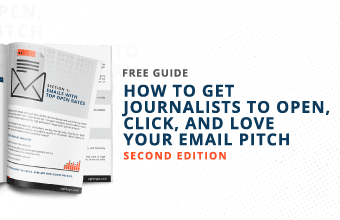It’s a practice that many journalists welcome as a way to get a head start on breaking news. Others view it warily, either as a logistical headache or as a hurdle to their newsgathering efforts. Mention it to bloggers who are not experienced journalists, and you’re likely to get a blank stare. I’m referring to news embargoes, the tactic of distributing news to reporters before a public announcement, with the understanding that the outlet won’t run the story until a specified day and time.
Prior to working for Bulldog Reporter, I was a technology journalist, where embargoes were relatively commonplace. Companies would brief me on forthcoming hardware and software products, usually weeks but sometimes months before their release. It’s an arrangement that worked well for both parties. I had more time to prepare my coverage, and I knew it wouldn’t be stale when my story appeared.
For B-to-B journalists, embargoes are doubly useful in advance of big trade shows, which typically see a flurry of product announcements on the opening day. If I’m briefed on the product in advance, it reduces the likelihood that I’ll miss the announcement at the show, plus it gives me a chance to get some of my work out of the way prior to attending the event.
Embargoes also play a big role in health and science journalism, where much of the coverage is based on research studies in peer-reviewed journals. Reporters typically get this news under embargo, either from the journals themselves or news services such as EurekAlert or Newswise. This gives them a chance to read the study, interview experts and then write the story in time for the study’s public release. There’s even a blog—Embargo Watch—devoted to the topic. The blogger, Ivan Oransky of MedPage Today, reports on cases in which outlets break embargoes and how the journals respond. He also writes about larger issues and trends involving the practice. You can learn more about the rationale behind the blog in this inaugural post.
The breaking of embargoes is one reason why many journalists are leery of them. If you agree to hold off writing about an embargoed announcement, how do you react when a competing outlet goes ahead and covers it? Even if the organization’s PR reps lift the embargo to accommodate other reporters, the damage has been done. In theory, the organization can punish the offending scribe by withholding future announcements, but this may not happen if the outlet has sufficient stature.
Some journalists refuse to accept embargoes on the theory that they can pursue the stories on their own. For others, the issue boils down to logistics—keeping track of when they can or can’t run a story is such a headache that they’re happy to get the press release when it goes out to the public. If you’re dealing with bloggers who don’t have a journalism background, a statement like “Embargoed until Feb. 11” may be meaningless.
If you’re on the media-relations side, the key—as with so many other aspects of PR—is to research your targets. Connect with the journalists who cover your company or industry and see if they have any policies about embargoes. Some may give you the go-ahead to send embargoed news on a regular basis, whereas others will want you to approach them before sending embargoed announcements to see if they’ll take the news on that basis. Unless you’ve made such arrangements ahead of time, you can’t assume that they’ll honor your embargoes.
It also pays to learn about each outlet’s deadlines and publishing cycle. This is especially important when dealing with weeklies—if an important publication appears on a Friday, an embargo that lifts on a Saturday won’t do them much good, especially if they compete with a daily newspaper.
Finally, you should strive to keep the playing field as level as possible. Unless you’re offering an exclusive—a thorny issue on its own—the embargo should lift at the same day and time for each outlet. This doesn’t necessarily mean that you have to brief them at the same time—it makes perfect sense to brief long-lead outlets further in advance. But all should have the opportunity to cover the story at the same time.







